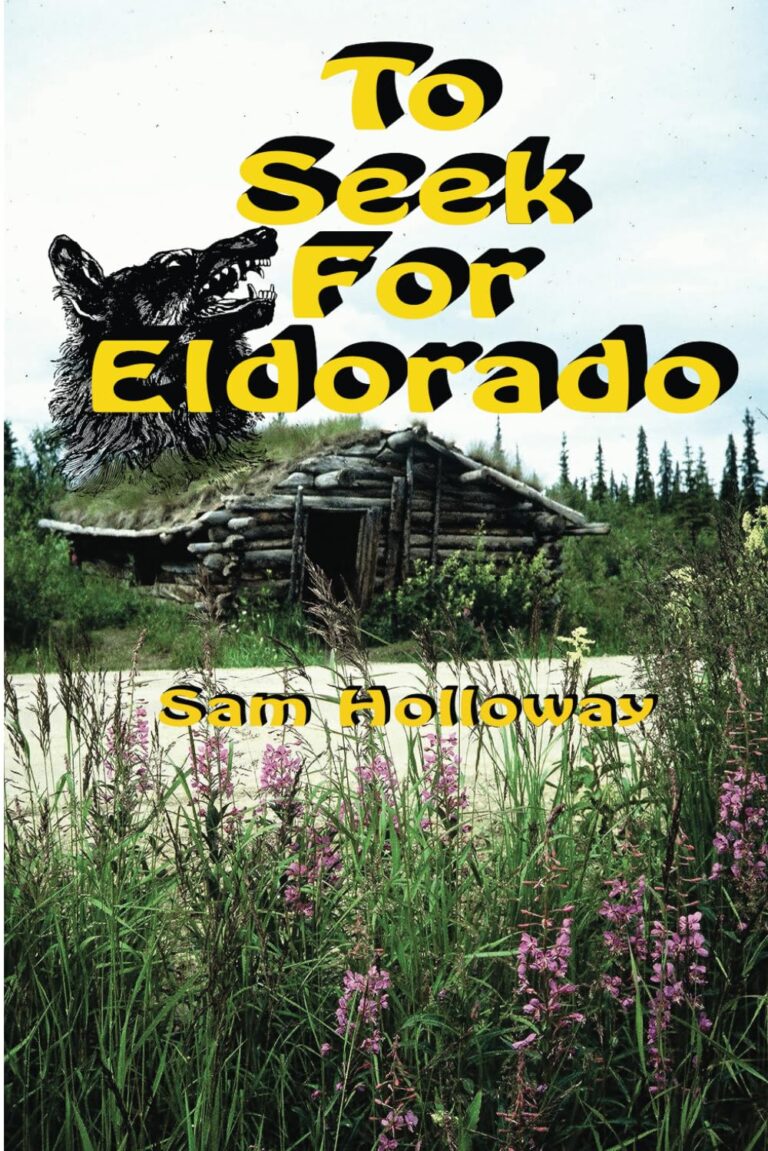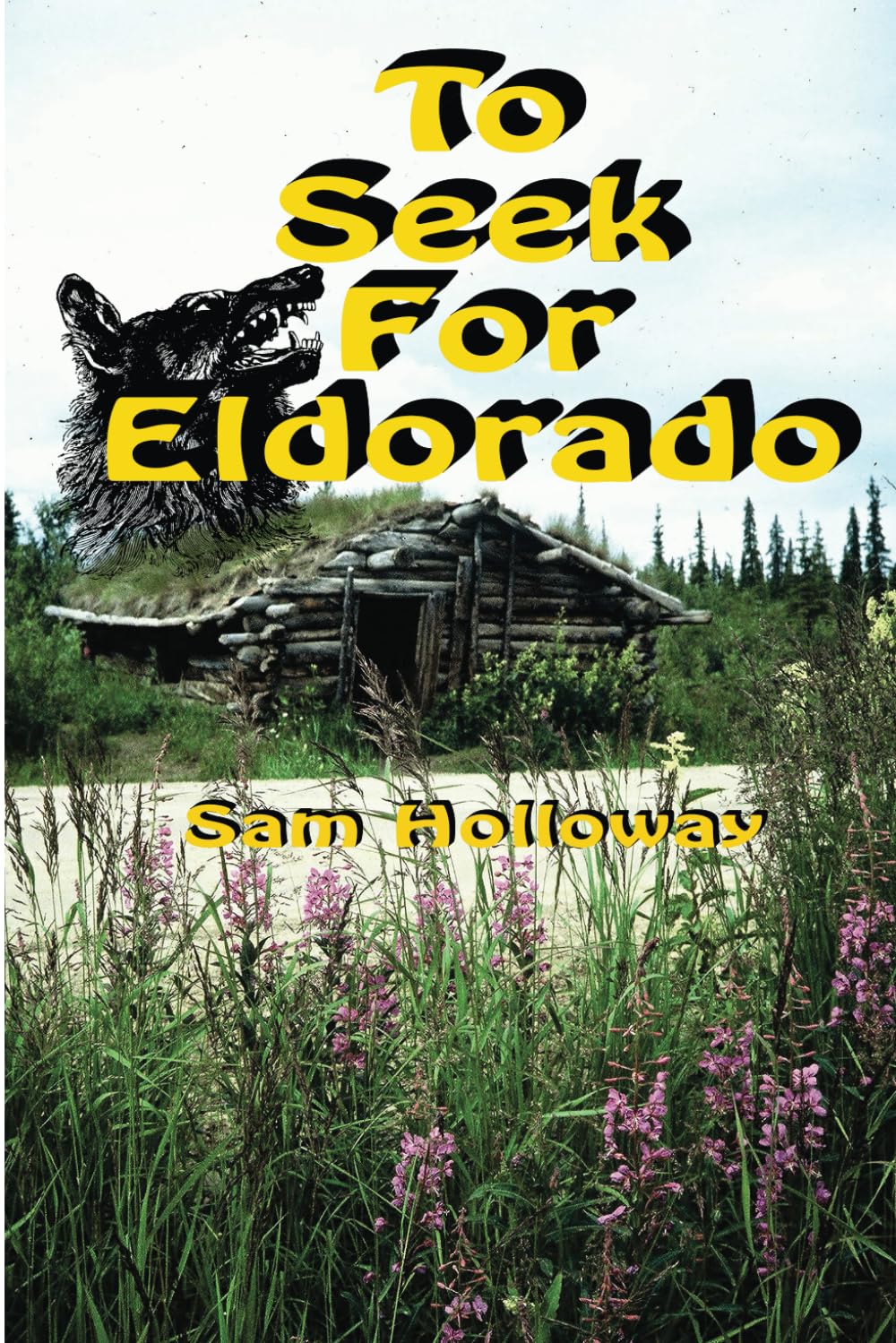Growing up in precarious poverty during a fuzzy decade of the 20th century, Lazlo’s few joys come from his budding romance with Lizzie, a preacher’s daughter. When the untimely discovery of their courtship leads the preacher to whisk Lizzie away, Lazlo sets off on a series of adventures that take him deep into the gold-panning territory of the Yukon.
Occasionally name-checking Jack London, Sam Holloway’s TO SEEK FOR ELDORADO often feels like a throw-back to pulp adventure stories of a bygone era mixed with some of the low-level criminality of hard-boiled crime fiction. As Lazlo describes his childhood, the text evokes genre fiction like The Postman Always Rings Twice, in which desperate people are always teetering on the edge of catastrophe. When he moves to the city looking for his girl, he plays the type of countless country folk who moved to the big city and got chewed up and spit out. Before long, Lazlo is heading west with a kooky old panner to find a claim through a swamp deep in the mountains, and the text has become a proper Western. Even the book’s latter section, in which Lazlo struggles to form something of a settled life amongst both honest folk and crooked ones, smacks of small-town frontier life in Westerns. Perhaps aided by the relatively brisk pace and sheer sincerity of Lazlo’s first-person narrative voice, these tropes never overstay their welcome—serving just well enough to allow the text to focus on unraveling its finer details of plot and scene.
The outstanding component here is the prose. The early sections, replete with vivid markers of rural poverty, are especially effective: the reader can practically taste “baked potato with pig fat for butter,” and see the gentle glow from the exposed tubes at the back of the old stand-up radio. Later on, Lazlo still peppers his adult speech with folk wisdom: “if you put a preacher and a thief together long enough, you’ll wind up with two thieves or two preachers.” There are some stylistic stumbling points (a consistent overuse of ellipses) and some regular outright errors (often pertaining to close-quotes and their accompanying punctuation), but these hardly detract from the pleasure of Lazlo’s voice.
This is not true of the book’s handling of its indigenous or native characters. While some of these characters are sympathetic and some of them antagonistic, none of them feel like thoughtful or respectful depictions of native life. Mostly, they seem to be bland caricatures. In more than one instance, the plot is advanced by the deus ex machina appearance of a native man; in one specific trope, a white man interloping on native territory is found wounded and then healed by strangers, a cliche which further leans into mystical tropes about indigenous belief systems and medicinal practices. The text devolves into outright Noble Savage fatalism, explicitly describing one man with the Latin concept of “dignitas” while the man in question delivers a stilted, overlong monologue about the suffering and endurance of native ways of life. A conflict with native family members in a bar adds nothing to the plot but a few pages’ worth of complication, with no further repercussions.
This is, effectively, the downside of ELDORADO’s over-reliance on tropes. Sometimes, those tropes allow for fast, energetic storytelling; other times, they rehash unexamined attitudes about people and leave a bad taste in the reader’s mouth. Though it may well please fans of Jack London and other adventure-mongers of days past, the novel needs more editing to fix its recurring grammatical errors, resolve some awkward phrasing, and especially remove or reimagine its scenes of native life.
Sam Holloway’s TO SEEK FOR ELDORADO effectively negotiates its tropes with some excellent turns of phrase, despite some grammatical fumbles and mishandling of key issues.
~Dan Accardi for IndieReader


